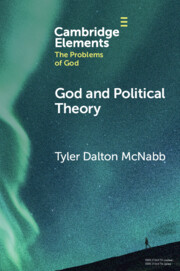Element contents
God and Political Theory
Published online by Cambridge University Press: 10 November 2022
Summary
- Type
- Element
- Information
- Series: Elements in the Problems of GodOnline ISBN: 9781009269117Publisher: Cambridge University PressPrint publication: 08 December 2022
References
- 12
- Cited by



